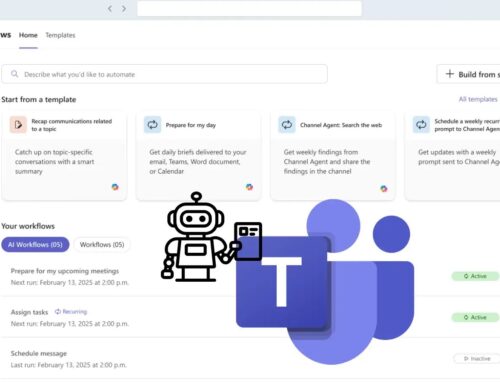
Microsoft Sued for Allegedly Misleading Millions to Subscribe for Microsoft 365 Subscriptions
Microsoft Under Fire: Australian Regulator Alleges Misleading Microsoft 365 Subscriptions
In an era where digital subscriptions are ubiquitous, trust and transparency are paramount. When a tech giant like Microsoft faces allegations of misleading millions of consumers, it sends ripples through the entire digital economy. Australia’s competition regulator, the Australian Competition and Consumer Commission (ACCC), has initiated legal proceedings against Microsoft, accusing the company of deliberately concealing cheaper Microsoft 365 subscription alternatives from approximately 2.7 million Australian consumers.
This lawsuit comes at a critical time, as businesses and individual users increasingly rely on cloud-based services and AI integration. The ACCC’s claims suggest a calculated strategy by Microsoft to steer consumers towards more expensive plans, particularly with the integration of its AI assistant, Copilot.
The Core of the Allegations: Concealed Alternatives and Pricing Transparency
The ACCC’s case centers on the allegation that Microsoft actively obscured the availability of more affordable Microsoft 365 plans. According to the regulator, this alleged deliberate concealment began when Microsoft started integrating its advanced AI assistant, Copilot, into its subscription offerings. This integration, while enhancing functionality, appears to have been used as a lever to push consumers towards higher-tier, more costly subscriptions without transparently presenting all available options.
The implications for consumers are significant. Many may have subscribed to plans they didn’t fully need or could have obtained similar functionality at a lower cost, simply due to a lack of complete information. This raises crucial questions about corporate responsibility and the ethical considerations surrounding subscription models in the digital age.
Impact on Consumers and the Digital Marketplace
The ACCC’s lawsuit against Microsoft highlights a growing concern in the digital marketplace: the potential for powerful companies to leverage their market position and complex product offerings to influence consumer choices in their favor. For the millions of Australian consumers affected, this means potential overpayment for services. For the broader digital economy, it underscores the need for robust regulatory oversight and clear guidelines for subscription services.
This situation also brings to light the delicate balance between innovation, such as the introduction of AI features like Copilot, and fair business practices. While AI advancements offer undeniable benefits, their integration must not come at the expense of consumer choice and financial transparency.
Regulatory Scrutiny in the Era of AI and Cloud Services
The ACCC’s action is part of a broader trend of increased regulatory scrutiny on tech companies worldwide. As services become more complex and integrated, especially with the rapid adoption of AI, regulators are keen to ensure that competition remains fair and consumers are protected. This lawsuit serves as a warning to other companies operating in the subscription-based cloud and AI markets to review their own practices regarding pricing transparency and consumer choice.
While this particular case does not involve a cybersecurity vulnerability in terms of a specific CVE, it touches on a fundamental aspect of digital trust. Misleading subscription practices can erode consumer confidence, which, while not a direct security exploit like CVE-2023-35618 (a recent Microsoft Outlook privilege escalation vulnerability) or CVE-2024-21410 (a Microsoft Exchange Server privilege escalation vulnerability), still undermines the security of the digital ecosystem by eroding the foundation of ethical business conduct.
Key Takeaways for Businesses and Consumers
- For Businesses: Ensure absolute transparency in subscription pricing and feature offerings. Clearly communicate all available tiers and their respective benefits, especially when integrating new technologies like AI. Compliance with consumer protection laws is not just a legal obligation but also crucial for maintaining long-term customer trust.
- For Consumers: Always review subscription details thoroughly. Compare different plans and pricing options before committing. If something seems unclear, seek clarification from the provider or consult independent reviews and consumer advocacy groups.
This lawsuit by the ACCC against Microsoft serves as a powerful reminder that even the largest technology companies are subject to regulatory oversight. It highlights the ongoing necessity for transparency, fair competition, and consumer protection in the rapidly evolving digital landscape.





